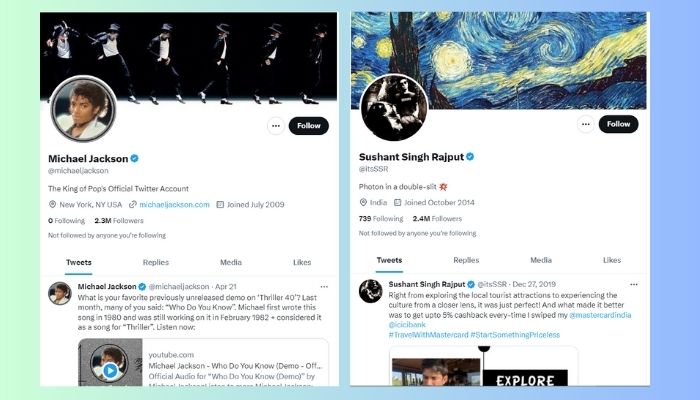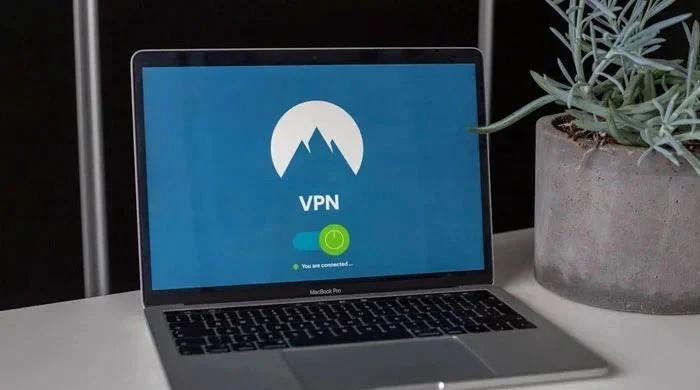Free Twitter Blue ticks for dead celebrities, paid for the rest
Twitter recently verified accounts of dead celebrities like Michael Jackson, Kobe Bryant, and Sushant Singh Rajput
April 24, 2023

Twitter's chaotic handling of the Blue Tick verification system has once again made headlines. At first, the micro-blogging platform removed the verified mark from most accounts and started charging users for it.
However, it later gave the Blue Tick for free to accounts with a minimum of one million followers, which has left many users feeling frustrated and disappointed due to the inconsistency of Twitter's policy.
The situation has become more complex due to Twitter's recent decision to verify the accounts of deceased celebrities, such as Sushant Singh Rajput, Sidharth Shukla, Kobe Bryant, Norm Macdonald, Anthony Bourdain, Chadwick Boseman, and Michael Jackson. These verified accounts now claim that the user is subscribed to Twitter Blue and has verified their phone number.
Many users have taken to Twitter to express their dissatisfaction with the current situation. They argue that the Blue Tick should be free, as it was in the past, and that they do not need access to the exclusive features that come with the Blue subscription. Some individuals have even refused to pay for the Blue Tick because they believe it should be a free service.
Actor Amitabh Bachchan recently made a public appeal to Twitter, requesting that the company immediately restore his Blue Tick, which he claimed to have paid for. However, he later discovered that it takes time for Twitter to verify an account, even if the user has paid the $8 fee.
In response, Amitabh Bachchan made a sarcastic tweet, begging Twitter to return his Blue Tick and even offering to fall to his knees and touch the company's feet if necessary. Eventually, his account was verified, but the actor still questioned Twitter's Blue Tick policy, asking why the company did not offer him the verification for free, given that he has over 48 million followers.
Overall, Twitter's handling of the Blue Tick verification system has been inconsistent and frustrating for many users. The recent decision to verify the accounts of deceased celebrities has added to the confusion, leaving some users wondering why they are being charged for a service that others receive for free.











